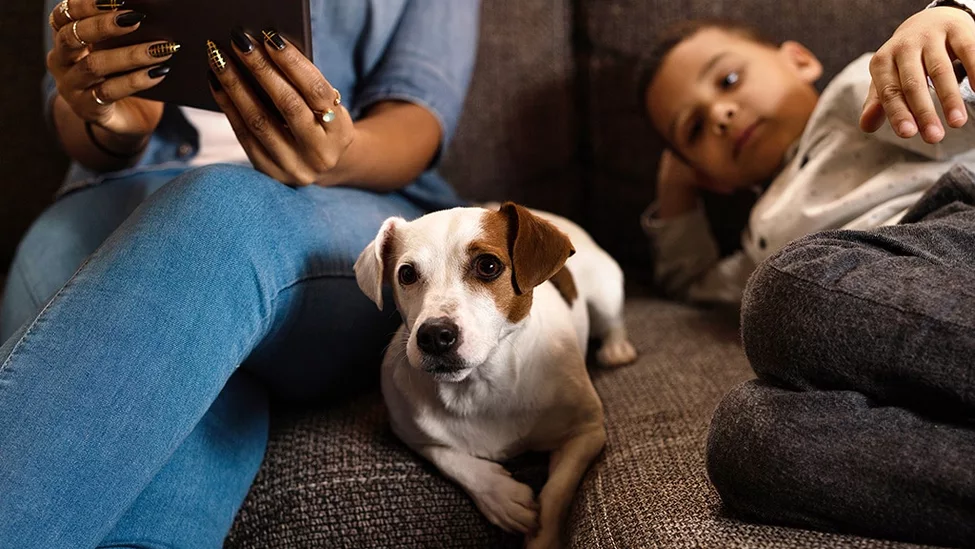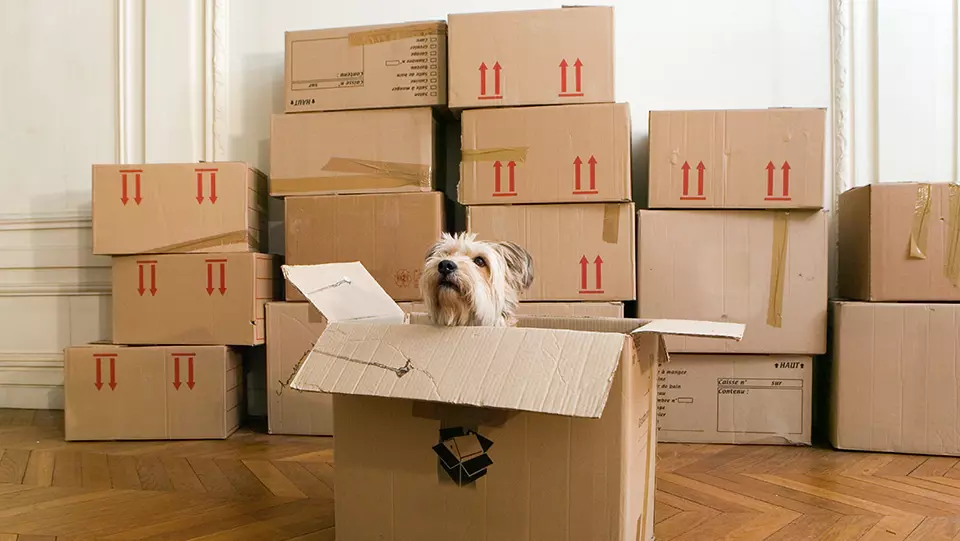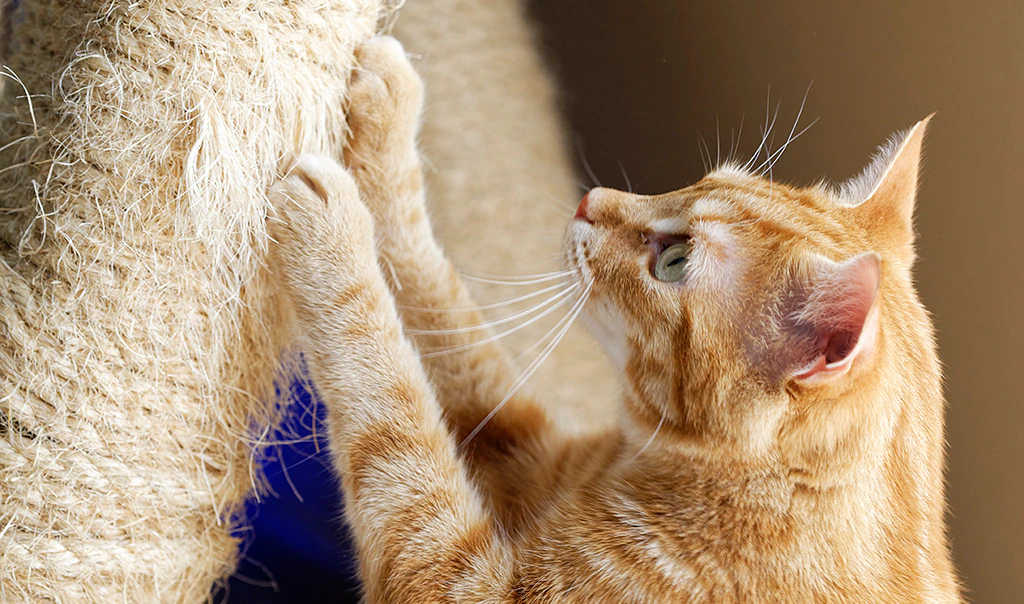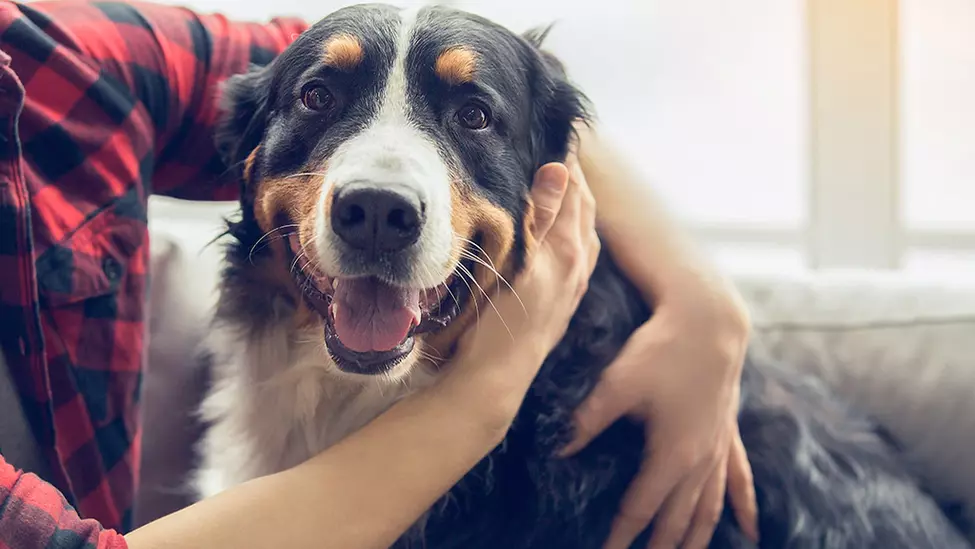What Not to Feed Your Dog

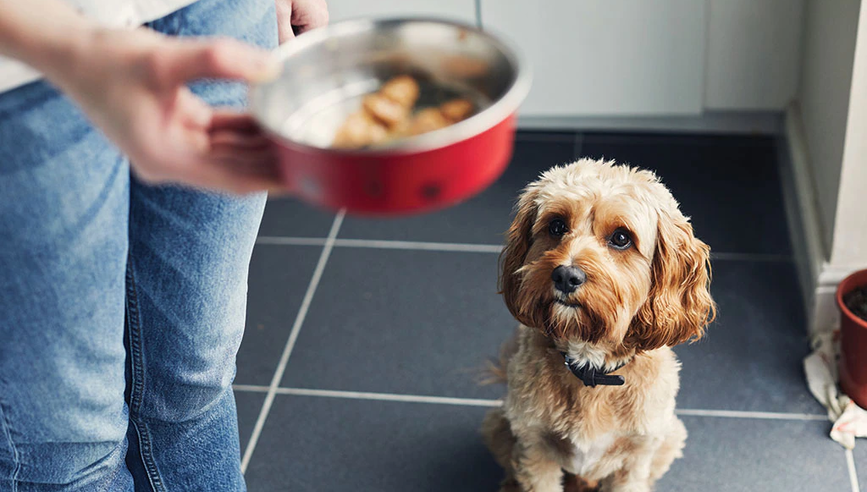
For dog owners, it can be tough to resist sharing our food with your furry family members. When they give you those puppy-dog eyes, you may be easily persuaded to share from your dinner plate, but there are many foods that are not safe for dogs. To help you avoid giving your dog the wrong snack, here’s a list of foods that are not safe for dogs, and a few that are:
Foods your dog can eat – and foods they shouldn’t
Let’s start with an overview of what veterinarians suggest pet owners should not feed their dogs.1 Keep in mind this is a suggested list, and that every dog is different. Some dogs may have a broader list of food intolerances while some may be better able to handle some of these foods, but you might want to play it safe and feed your dog only food that is specifically made for dogs.
Pretzels, potato chips and pita chips
Your favorite snack foods may be fine for you, but they often contain a lot of salt. For a dog, too much salt can lead to sodium poisoning, which can damage their kidneys. If your dog is suddenly drinking and urinating excessively, it may be a sign that they have eaten something salty. If you want to give your dog snacks, choose unsalted and baked dog treats.
Onions and garlic
Fresh onion and garlic contain substances that can harm a dog’s red blood cells. Onion and garlic powders contain the same ingredients as fresh onions and garlic, so don’t let your dog get into the spices either. Also, avoid giving your dog any heavily seasoned food, which can cause stomach problems or excessive thirst.
Caramel, butterscotch and toffee
Chewy candies like caramel, butterscotch and toffee aren’t toxic for dogs, but they can be difficult for them to chew and swallow. These candies also contain sugar, butter and salt, all of which are bad for dogs.
Fried foods
Fatty and fried foods like fried chicken, bacon or spareribs are a bad idea for dogs as they are likely to have added salt and seasonings. In addition, the fat content can cause vomiting and diarrhea and lead to pancreatitis, especially in small dog breeds like schnauzers and terriers.
Grapes and raisins
Grapes and raisins are highly toxic to dogs and can cause sudden kidney failure. Even one grape or raisin can cause a very bad reaction, so if you think your dog has eaten one, call poison control or your veterinarian immediately.
Gum and candy
Chewing gum and hard candy aren’t easy for your dog to chew and digest. But more importantly, many varieties contain a substitute sweetener called xylitol. Xylitol has been shown to cause low blood sugar (hypoglycemia), seizures and liver failure in dogs.
Avocados
While many people enjoy them and their health benefits, avocados contain a substance called persin, which can cause vomiting and diarrhea in dogs.
Coffee and tea
Some people need a cup of tea or a morning espresso to jump-start the day, but dogs typically don’t digest caffeine well. The caffeine in these drinks (and foods made or flavored with them) can make your dog’s heart race, spike their blood pressure and even cause seizures.
Chocolate
Chocolate also contains caffeine, as well as theobromine, another stimulant that is not good for dogs. Remember, the darker the chocolate, the more dangerous it is to your dog. Even a small amount could cause diarrhea, vomiting, seizures or even death.
Cookies
Cookies are often loaded with ingredients like chocolate, sugar and butter – all of which are bad for dogs. If you want to reward your dog, only give them cookies and treats that are made for dogs.
Alcohol
The same buzz that you get from drinking alcohol also affects dogs. Because dogs generally weigh less than humans and have smaller livers, giving them alcohol can lead to nervous distress, coma and even death.
Safe foods
If you want to share “people food” with your dog, there are some foods that are generally considered safe to give them:
- Unsalted, raw or roasted peanuts removed from their shell. Stay away from macadamia nuts, which can be toxic.
- Unsalted pretzels.
- Plain cooked chicken, beef, fish or lamb. Avoid tuna and chicken salad, which may contain extra salt, fat and seasonings that can be bad for your dog.
- White rice, pasta and small amounts of plain bread.
- Regular cheese, if you know your dog doesn’t have lactose intolerance.
- Plain, unsalted peanut butter (avoid brands sweetened with xylitol).
- Carrots, apples, green beans and many other whole fruits and veggies – check with your veterinarian.
Accidental dog poisoning — what to do
Of course, even the most diligent pet owners can’t always keep their dogs from getting into food that they shouldn’t eat. If you think your dog has eaten any of the dangerous foods from this list or any other harmful substances, don’t try to treat your dog yourself. Immediately contact your veterinarian or the ASPCA Animal Poison Control Center (APCC). The APCC is available 24/7 at 888.426.4435. Note that there may be a consultation fee for the call.
Make sure your dog is covered
Because accidents happen, it’s a good idea to have pet insurance coverage to help pay the expenses when your dog needs to go to the vet or to an emergency veterinary clinic.
Looking for ways to help protect yourself from high vet bills? Learn more about Pet Insurance.
Source
1 https://www.aspcapetinsurance.com/resources/what-foods-can-dogs-not-eat/
